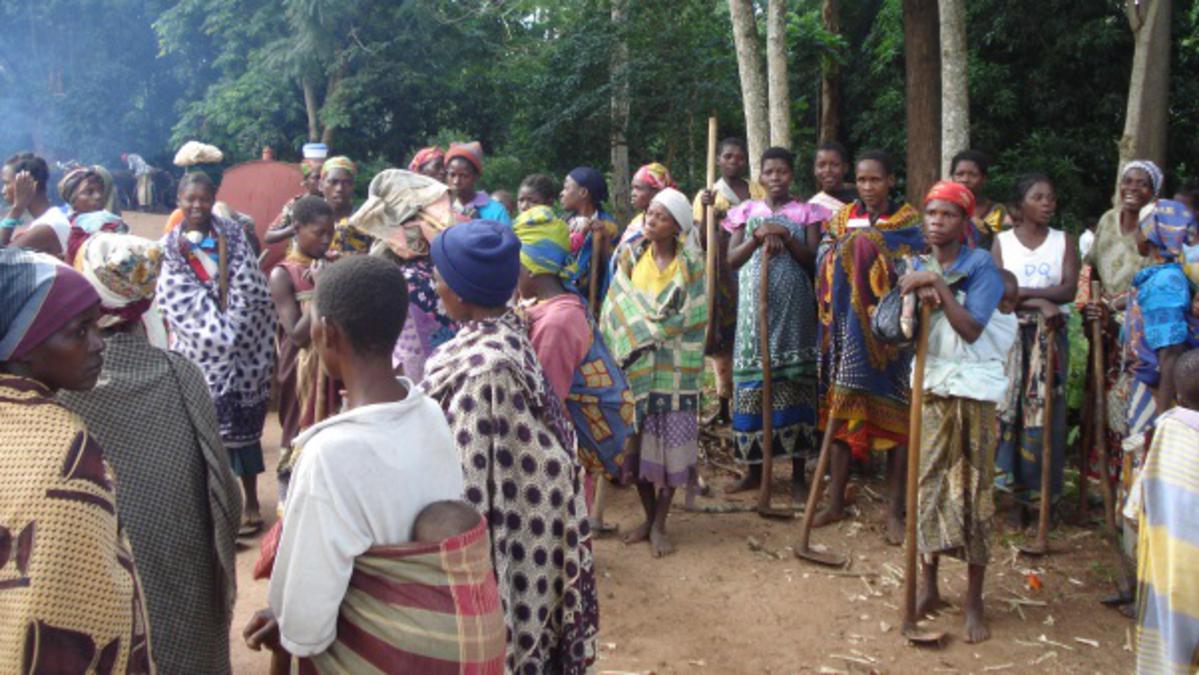Contributed by Paul Christensen of the Abbotsford British Columbia Stake
Alma 37:45: And now I say, is there not a type in this thing? For just as surely as this director did bring our fathers, by following its course, to the promised land, shall the words of Christ, if we follow their course, carry us beyond this vale of sorrow into a far better land of promise.
Ether 6:8, 10: And it came to pass that the wind did never cease to blow towards the promised land while they were upon the waters; and thus they were driven forth before the wind....and no monster of the sea could break them, neither whale that could mar them….
----------
Over the past eight years, I have travelled the world, seeking out children who have been orphaned by disaster, disease, violence or poverty. This endeavour has taken me to Haiti, the Philippines, Guyana, Japan and many parts of Africa.
Although born and raised in Canada, I have felt a need to help my young brothers and sisters wherever they might be. I have sought out those who could not help themselves and provided the blessings my Father has given me with the charge to, 'Feed my sheep'. These accounts are some of the many wonderful experiences I had through this work in Africa.
On several occasions, I have found myself in the middle of a slum with thousands of people around me pleading for help. I would sometimes feel helpless to resolve all their problems. The children would cling to me and the adults would plead for anything to help. At these moments, I would ask myself, 'What am I doing here? I will never be able to solve these problems and help all these people'. It is at these times that I would call my dear wife back in Canada to help me make sense of what I am doing half way around the world in the middle of such a human struggle for survival. In her sweet, kind and thoughtful way, she would remind me of those that have been helped and encourage me to just keep going.
My sense of hopelessness would shortly thereafter be set aside when I would be with some children we were helping and they would come up to me beaming with joy and happiness, eager to show me their school-marks or a picture they recently drew.
Journal Entry: WE ARE STARVING
Recently we found ourselves in Mozambique. We were being housed in a Catholic mission and we were there to determine the needs of the children in the area. One morning, we determined to take a walk out of the village. As we proceeded up the trail, we encountered many people going in the opposite direction, carrying rakes and hoes over their shoulders. Most of the people were women, some with babies on their backs. After a while, we determined to turn around and follow the crowd. After walking for a while, we saw that the people were all gathering in a clearing. In Mozambique, they speak Portuguese, so it was hard to communicate with them. I finally found a person who understood English and I asked him why all the people had gathered together. He responded that they were all starving and would come to find work in the fields. They had walked from their villages in the hope of finding work for the day.

Journal Entry: MAYBE WE WILL EAT TOMORROW
On one of our visits to the slums of Mombasa, we visited a rather meager looking orphanage. The matron had the sweetest heart and it was clear that she gave everything she had to the children. As she showed us around the home, it was evident that they had only the barest of necessities. She explained that she had no supporters and that the other women helping out were doing so without payment for they seldom had money. When she found work, she would bring her earnings home and purchase food for the children. I asked to see her food pantry and was shown a practically bare shelf. I asked her where she will get the food for the next day. She replied that she would go out in the evening and beg. I pressed the point by asking what she would do if she didn’t get any food that day. She explained that she would return to the home empty-handed and would explain to the children that there would be no food tonight, but maybe they would eat tomorrow.

It was a cold dark night when the children of the orphanage were awakened to the sounds of heavy equipment. Banging on the door was a developer who had claim to the land and wanted to evict the children’s home. He chose the middle of the night to start his work to avoid the certain refusal of authorization by government officials. The children had only minutes to quickly flee from the buildings before the bulldozers came in and flattened the buildings and everything that was inside. Orphans in Africa have no voice and are often disregarded, ignored and taken advantage in such ways.

